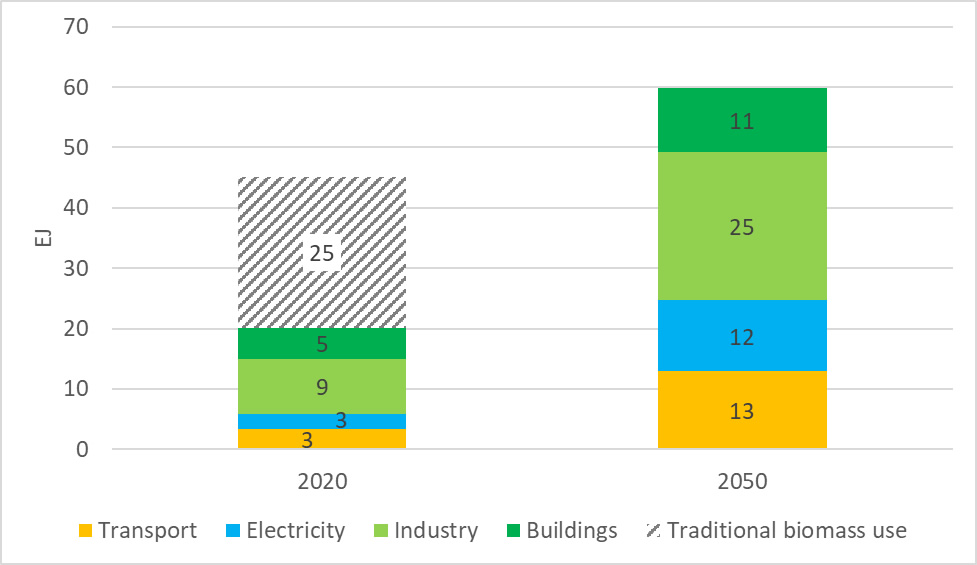Heat Pumps their Usage and Preconditions
- Details
- Hits: 6323
With air source and ground source heat pumps what are the key requirement to enable cheap and efficient heating and hot water in the UK?
In order to enable cheap and efficient heating and hot water with air source and ground source heat pumps in the UK, there are several key requirements:
 'Adequate' {Extremely High Levels of:} insulation: The building must have adequate insulation to minimize heat loss and improve the efficiency of the heat pump system. By "Adequate" we mean' substantially in excess of current building regulations standards'. Like the German Passivehaus standard. This would also presuppose an efficient {mechanical or passive} ventilation system with heat exchanger technology and "Earth Pipes" to pre-heat [winter] or pre-cool [Summer] incoming fresh air. See Passivehaus article HERE AT THIS WEB LINK.
'Adequate' {Extremely High Levels of:} insulation: The building must have adequate insulation to minimize heat loss and improve the efficiency of the heat pump system. By "Adequate" we mean' substantially in excess of current building regulations standards'. Like the German Passivehaus standard. This would also presuppose an efficient {mechanical or passive} ventilation system with heat exchanger technology and "Earth Pipes" to pre-heat [winter] or pre-cool [Summer] incoming fresh air. See Passivehaus article HERE AT THIS WEB LINK.- Proper sizing of the system: The heat pump system must be properly sized to match the heating and hot water demands of the building. Over-sized or undersized systems can result in inefficiencies and higher costs.
- Suitable location: For ground source heat pumps, the site must have suitable geology and hydrology to support the installation of the ground loop. For air source heat pumps, the location must have adequate airflow and temperature differentials to enable efficient operation.
 High-efficiency heat pump equipment: Choosing a high-efficiency heat pump with a high coefficient of performance (COP) can significantly improve the efficiency and cost-effectiveness of the system.
High-efficiency heat pump equipment: Choosing a high-efficiency heat pump with a high coefficient of performance (COP) can significantly improve the efficiency and cost-effectiveness of the system.- Energy-efficient hot water storage: Using an energy-efficient hot water storage tank can reduce the amount of energy required to heat water and improve the overall efficiency of the system. This is because an highly insulated hot water storage tank can act as a 'buffer' or heat-store, between energy supply and demand - particularly relevant at colder period, say night time in winter - so supplement the energy needs from the heat store.
- Climate-appropriate design: The design of the building should take into account the local climate and weather conditions to optimize the performance of the heat pump system. This would also include aspects of the property and its orientation {to the Sun, and prevailing winds}, earthworks and planting to mitigate 'wind chill' effects on walls, windows and roofs. PDF scan of 1981 Research Article {Wind and Building Energy Consumption: an Overview} HERE
By meeting these requirements, air source and ground source heat pumps can provide cost-effective and efficient heating and hot water in the UK. As can be seen in some of the photo's, particularly with Ground-Source Heat Pumps, associated equipment, controllers, buffer tanks and installation, considerable space is needed. Therefore we strongly recommend new properties be build with a basement {in light of the deeper foundations required from Building Control this may not be as expensive as imagined}. Additional benefits of basement include, Rainwater Storage, Computer Sever Room, Distribution to the floor above for Internet, Telephone, Sound Systems etc.
Global Small Hydro Power - SHP
- Details
- Hits: 4005
 Hydropower is a flexible technology, proven, improved and refined over many years, yet its site-specific features make it highly innovatory in application, which makes use of a wide range of available resource – large or small, storage or run-of-river, and including tidal range, canals and even water treatment works. Over 150 years ago it revolutionised electricity generation in the UK and it is still one of the most inexpensive ways to generate power, playing an important role in our electricity system stability.
Hydropower is a flexible technology, proven, improved and refined over many years, yet its site-specific features make it highly innovatory in application, which makes use of a wide range of available resource – large or small, storage or run-of-river, and including tidal range, canals and even water treatment works. Over 150 years ago it revolutionised electricity generation in the UK and it is still one of the most inexpensive ways to generate power, playing an important role in our electricity system stability.
This section comprises 18 case studies of successful small hydropower (SHP) implementation in a range of communities and aims to add a more detailed, practical perspective on the trans-formative potential of SHP and the best practices. Case studies give specific examples of communities that use SHP for productive use to meet their needs and improve quality of life. The purpose of this new section is to make the learnings drawn from such experiences easily accessible, forming a knowledge base that can benefit communities, decision-makers and developers elsewhere.
The cases demonstrate how reliable access to electricity provided by SHP revolutionizes the daily lives of communities worldwide, in particular in rural areas, creating employment opportunities, stimulating economic development, strengthening the capacity of existing infrastructure and local institutions, while minimizing negative environmental impacts. The following five aspects of SHP development are covered in the case studies.
Anaerobic Digestion (AD) and biogas industry
- Details
- Hits: 4354

The Anaerobic Digestion (AD) and biogas industry is recognised as one of the required quick fixes. The reasons are many:
- AD’s ability to mitigate methane emissions from rotting organic wastes, positions it among the ‘fastest, most immediate and cost-effective’ ways to solve the issues raised above - "low hanging fruit" as it were, and will play a crucial role in delivering the Global Methane Pledge.
- AD produces natural fertiliser, a ready organic replacement for its petro-chemical counterpart, where a 20% slump in supply, forecast to last for several years, has led to ‘famine’ warnings.
- AD produces renewable energy, that cuts costs of manufacture, allows governments to insulate economies from international price hikes.
- AD can produce biomethane as clean transport fuel – dramatically reducing so-called 'carbon (dioxide) emissions and cutting air pollution in our cities ( as a replacement of diesel fuels), delivering health benefits valued in the billions of dollars/pounds.
- AD and biogas are the readily available, ready to deploy at scale, solution to these global challenges. With the right enabling environment AD can deliver millions of skilled jobs, especially potentially transitioning from the oil and gas industry, rural sustainability, energy and food security.
- As a circular solution the deployment of AD has a ripple effect – stimulating sustainable practices across society. That is why the International Energy Agency (IEA) says AD sits at the heart of a circular economy and is the poster boy for net zero.
- AD sits at the heart of an integrated energy response to the challenges we face, delivering immediate results and ushering in an era of flexible energy management systems that integrates technologies across different energy vectors (electricity, heat and gas) and Supporting Food Production with the by-products (Compost etc).
Developing the enabling environment to unleash the power of biogas is what global thought leadership summit's explore, with industry leaders addressing best practice to de-risk and short-circuit AD deployment.
In summary: Some key features of bioenergy:
- Available now
- Applicable in all energy sectors (electricity, direct heat, transport)
- Readily integrated with existing infrastructure
- Store-able – it can support expansion of intermittent renewables
- It can deliver negative emissions when linked to Carbon Capture & Storage (CCS): BECCS / Bio-CCS
Bioenergy contributes to climate change mitigation when:
- Biomass is based on waste/residues
- Converted to energy products efficiently
- Used to displace GHG-intensive fuels
Bioenergy encompasses many potential feedstocks, conversion processes and energy applications. It interacts strongly with the agriculture, forestry and waste management sectors, and its prospects are linked to the growth of a broader bioeconomy. Bioenergy can only expand if supplied and used in a sustainable manner.
Server Farms And Cooling
- Details
- Hits: 3806
 Servers Designed for Immersion (SDI) – An Alternate Approach
Servers Designed for Immersion (SDI) – An Alternate Approach
If you’ve already implemented or are considering a “white box” solution – building your own servers – or you want to truly maximize space, power and budget, then SDI may be your best choice.
Immersion cooling technology addresses the key concerns of thermal design and hardware reliability that are common with air-cooled, white box servers. Further, engineering purpose-built servers from the ground up allows more than just design them for cost and performance, but also for space and power utilization.
Key Benefits of Servers Designed for Immersion:
-
Purpose-built for application
-
Mix and match components without worrying about thermal design limitations and reliability
-
No extraneous components, such as integrated fans, heat sinks and oversized power supplies, reduce cost and e-waste
-
More power-efficient – up to 30% lower energy use vs air-cooled servers
-
Maximized rack density with simplified, modular chassis that utilize much higher immersion cooling capacities
SDI are an ideal match for micro-modular, rack-based immersion cooling system and immersion-cooled, modular data centres.
Page 3 of 4
